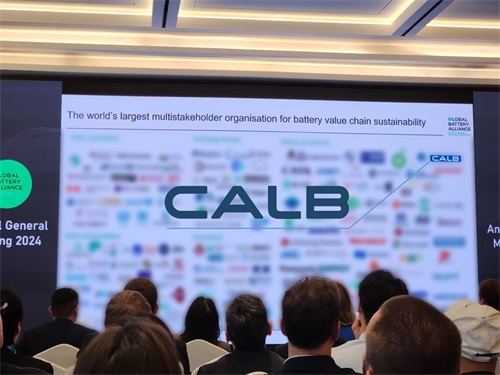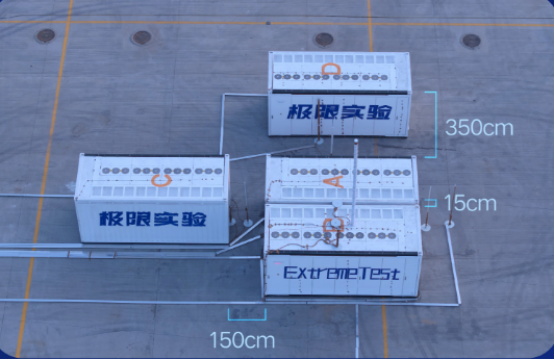What different series of LiFePO4 batteries can you choose to meet the requirements?
LiFePO4 battery, also known as lithium iron phosphate batteries, are gaining widespread recognition due to their exceptional safety, long lifespan, and versatility. These batteries stand out because of their unique chemical composition and design, making them a popular choice for a wide range of applications, from electric vehicles to energy storage systems. But what exactly are LiFePO4 batteries, and how do the different series of these batteries address specific needs? This article will provide an in-depth look at the various types of LiFePO4 batteries, their advantages, and their practical uses, helping you understand how to choose the right battery solution for your energy requirements.
Part 1. Overview of LiFePO4 Batteries
LiFePO4 batteries are a type of lithium-ion battery that uses lithium iron phosphate as the cathode material. This material choice provides several key benefits:
Safety: LiFePO4 batteries are known for their excellent thermal stability, making them less likely to overheat or catch fire compared to other lithium-ion chemistries. This makes them a safer option, especially in high-temperature environments.
Longevity: These batteries are designed to withstand a large number of charge cycles, often exceeding 2000 cycles, without a significant decrease in capacity. This longevity results in lower long-term replacement costs, making them economically favorable.
Performance: LiFePO4 batteries deliver consistent voltage throughout their discharge cycle, providing stable performance until they are nearly depleted. This reliability is vital for applications that require a steady power supply.
Part 2. What different series of LiFePO4 batteries
LiFePO4 batteries can be categorized in several ways to help consumers better understand their options. The main classification methods include:
By Shape
Cylindrical lifepo4 cells: These round-shaped batteries are commonly used in consumer electronics. Their durable design promotes better heat dissipation, making them ideal for devices such as power tools and laptops.
Lifepo4 prismatic cells: Rectangular in shape, prismatic cells are space-efficient and often used in electric vehicles and large-scale energy storage systems. Their design allows for flexible arrangements in battery packs.
Lifepo4 pouch cells: These lightweight and flexible cells are perfect for applications that prioritize minimizing weight, such as drones and portable electronics. However, they can be more sensitive to temperature variations and mechanical stress.
Large-Format LiFePO4 Cells: Designed for high-capacity applications, large-format cells are suitable for renewable energy systems and provide bulk energy storage, which is essential for solar power installations and grid support.
By Current Level
Low Current: Suitable for low-power devices like portable fans and flashlights, these batteries are efficient for everyday use.
Medium Current: Typically used in power tools and e-bikes, these batteries strike a balance between power output and efficiency, making them versatile across many applications.
High Current: Ideal for high-demand applications like electric vehicles and heavy machinery, high-current batteries are engineered for maximum performance and energy delivery.
By Application
Consumer Electronics: LiFePO4 batteries are widely used in portable electronics like laptops and smartphones, where safety and reliability are crucial.
Electric Vehicles: With the growth of electric mobility, LiFePO4 batteries are increasingly used in e-bikes, scooters, and electric cars, offering a balance of weight, power, and safety.
Energy Storage: LiFePO4 batteries are integral in solar energy systems and grid storage solutions, enabling the effective use of renewable energy.
Part 3. LiFePO4 Battery Types: Cylindrical vs. Prismatic vs. Pouch
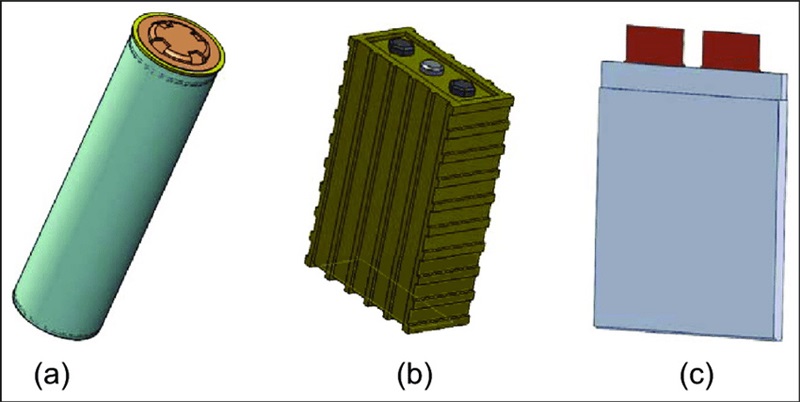
(a) Cylindrical LiFePO4 Cells
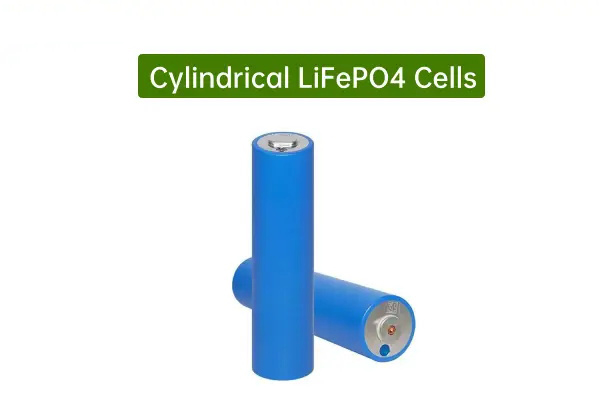
Advantages: Robust construction for durability, excellent heat dissipation, and relatively good energy density for their size.
Disadvantages: Heavier and bulkier than other types, limiting their use in lightweight applications.
Applications: Widely used in portable electronics, power tools, and electric bicycles.
Voltage: Typically around 3.2V per cell.
Capacity Range: 1000mAh to 3000mAh.
Price: Affordable, Contact us for a free quote
(b )Prismatic LiFePO4 Cells
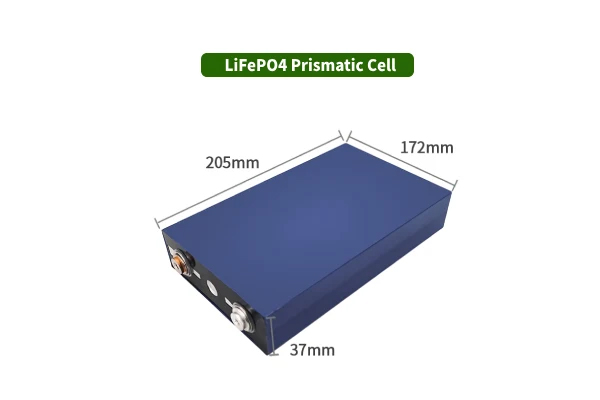
Advantages: Space-efficient design allows for larger energy storage, with higher capacity than cylindrical cells, making them ideal for electric vehicles.
Disadvantages: Higher manufacturing costs, leading to a higher price for consumer products.
Applications: Common in electric vehicles, large energy storage systems, and industrial applications.
Voltage: Nominal voltage of 3.2V.
Capacity Range: 100Ah to 200Ah.
Price: Affordable, Contact us for a free quote
(c) Pouch LiFePO4 Cells
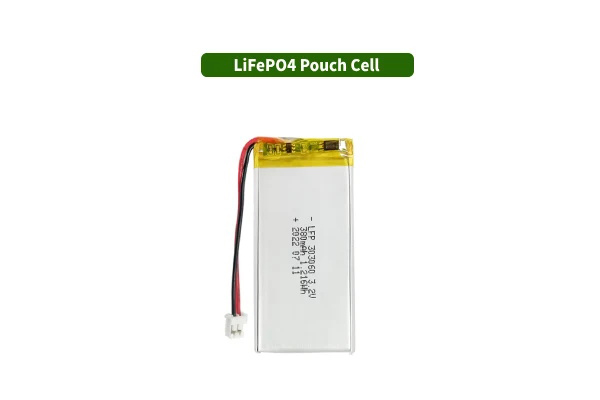
Advantages: Lightweight and flexible, ideal for compact applications, with high energy density for their size.
Disadvantages: Less durable and more susceptible to temperature changes and mechanical stress.
Applications: Used in portable electronics such as smartphones and tablets, as well as drones and other lightweight applications.
Voltage: Approximately 3.2V.
Capacity Range: 1000mAh to 3000mAh.
Price: Affordable, Contact us for a free quote
Large-Format LiFePO4 Cells
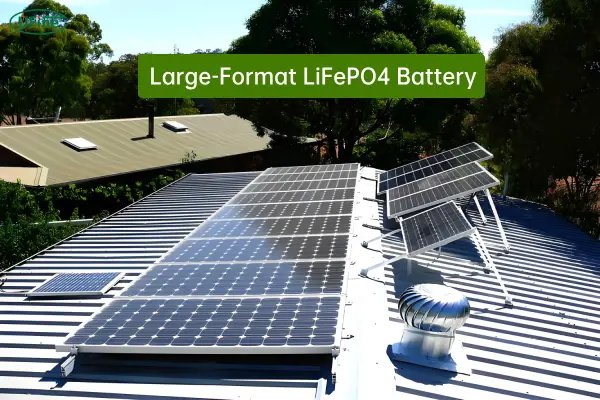
Advantages: Designed for high-capacity applications, these cells are perfect for large-scale energy storage and renewable energy systems.
Disadvantages: Requires more installation space, which may be a limitation for residential use, and comes with higher initial costs.
Applications: Ideal for solar energy systems, grid support, and commercial energy storage solutions.
Voltage: Nominal voltage of 3.2V.
Capacity Range: Starting at 200Ah, and can go much higher.
Price: Affordable, Contact us for a free quote
Part 4. LiFePO4 Battery Factory
As a leading lithium battery factory in China, EnergyX specializes in the production of various lithium iron phosphate batteries. Our commitment to quality and safety ensures that all our products meet stringent industry standards, giving our customers peace of mind. EnergyX offers tailor-made solutions to meet a variety of needs and applications.
Understanding the various series of LiFePO4 batteries is crucial for making an informed decision. Each type comes with distinct advantages tailored to specific applications, such as electric vehicles, solar energy storage, or consumer electronics. By choosing the appropriate battery, you can improve the efficiency, performance, and reliability of your projects.
